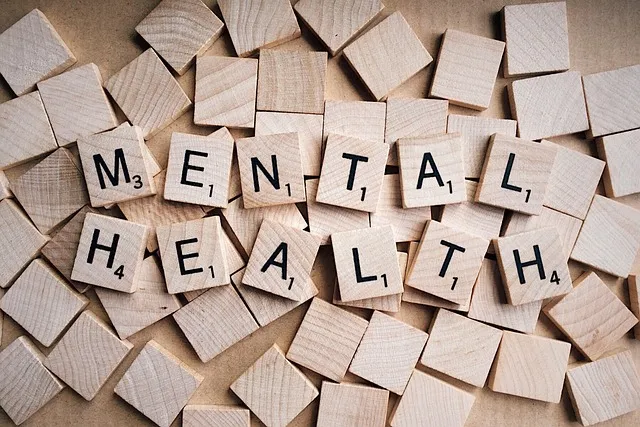At Kaiser Permanente's mental health facility in Golden, successful group facilitation creates a safe, supportive environment through clear ground rules, guaranteed confidentiality, active listening, emotional intelligence, and non-judgmental discussions. This fosters resilience, strengthens bonds, and promotes mental wellness among participants while implementing effective burnout prevention strategies for healthcare providers. Cultural competency training ensures every individual feels validated and understood, aligning with comprehensive Mental Health Education Programs designed to address cultural barriers.
Mental wellness group facilitation is a powerful tool for fostering community, understanding, and healing. This guide explores effective techniques for leading successful support groups, drawing insights from the resources and expertise of the Kaiser Permanente mental health facility in Golden. We’ll cover everything from establishing a safe, supportive environment to engaging participants through diverse activities and navigating challenges that may arise. By implementing these strategies, facilitators can create a transformative experience for every member.
- Setting the Stage for Success: Creating a Safe and Supportive Environment
- – Establishing ground rules and boundaries
- – Fostering trust and open communication
Setting the Stage for Success: Creating a Safe and Supportive Environment

At a Kaiser Permanente mental health facility, Golden, successful group facilitation is heavily reliant on creating an environment that fosters safety and support. This begins with establishing clear ground rules, ensuring confidentiality, and promoting active listening to make every participant feel heard and respected. Facilitators should model emotional intelligence, demonstrating empathy and understanding for the diverse experiences within the group. By cultivating a non-judgmental space, participants are more likely to open up about their challenges, share insights, and build meaningful connections with one another—a crucial aspect of effective support groups.
Additionally, incorporating empathy building strategies can significantly enhance this process. Encouraging active participation through open discussions and interactive exercises helps group members develop a deeper understanding of each other’s perspectives. This not only strengthens the emotional bonds within the group but also serves as a powerful tool in depression prevention by promoting resilience and a sense of belonging. A supportive environment, thus created, becomes a dynamic space where mental wellness is actively nurtured and celebrated.
– Establishing ground rules and boundaries

Establishing clear ground rules is an essential step in creating a safe and supportive environment for mental wellness groups at facilities like Kaiser Permanente’s mental health services. These rules, often discussed collaboratively with the group members, set boundaries that foster an open yet respectful atmosphere. Facilitators should encourage participants to share their expectations regarding confidentiality, active listening, and respect for diverse perspectives.
This process allows individuals to express their needs, especially regarding sensitive topics. By establishing these norms, facilitators can help members build inner strength and enhance mood management skills. Additionally, it contributes to effective burnout prevention strategies for healthcare providers by creating a structured yet nurturing group dynamic that encourages genuine connections and meaningful discussions, tailored to the Golden rule of mental health support: treat others as you would like to be treated.
– Fostering trust and open communication

Fostering trust and open communication is a cornerstone of effective group facilitation at Kaiser Permanente mental health facilities, such as the Golden location. Building a safe and supportive environment encourages participants to share their experiences and insights openly. This begins with establishing clear ground rules that emphasize confidentiality, respect, and non-judgmental listening. Group facilitators play a vital role in modeling these behaviors, creating a sense of community where individuals feel empowered to express their thoughts and feelings.
Incorporating cultural competency training for mental health professionals is essential to navigate the diverse backgrounds of participants. The Healthcare Provider Cultural Competency Training equips facilitators with the skills to recognize and appreciate different perspectives, ensuring that every individual feels validated and understood. This approach aligns with the design of comprehensive Mental Health Education Programs, which aim to promote well-being by addressing cultural barriers and fostering inclusive communication within mental health facilities like Kaiser Permanente Golden.
Mental wellness group facilitation is an art that can significantly enhance the therapeutic experience at Kaiser Permanente mental health facilities, such as the renowned Golden location. By implementing strategies like setting clear ground rules and fostering a culture of trust and open communication, facilitators create a safe haven for individuals to navigate their mental health journeys. These techniques not only encourage active participation but also ensure every member feels heard, respected, and supported, ultimately enhancing the overall effectiveness of group therapy sessions.






